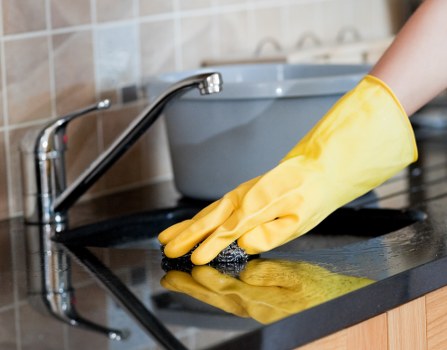Cleaner Virginia Water: Preserving Our Precious Resource

Virginia Water is renowned for its stunning landscapes and serene water bodies. However, maintaining the cleanliness of these waters requires collective effort and sustainable practices. In this article, we explore various strategies and initiatives aimed at ensuring cleaner Virginia Water for future generations.
Water pollution is a pressing issue that affects not only the environment but also the health and well-being of local communities. By understanding the sources of pollution and implementing effective measures, we can significantly improve the quality of Virginia Water.
Community involvement plays a crucial role in water conservation. Local organizations and residents can collaborate to monitor water quality, participate in clean-up events, and promote awareness about the importance of maintaining clean water sources.

Sources of Water Pollution in Virginia Water
Identifying the primary sources of pollution is the first step towards addressing the issue. Common pollutants include agricultural runoff, industrial discharges, untreated sewage, and plastic waste.
Agricultural activities can introduce pesticides and fertilizers into water bodies, leading to nutrient pollution. This can result in algal blooms, which deplete oxygen levels and harm aquatic life.
Industrial discharges often contain harmful chemicals and heavy metals that can contaminate water sources. Strict regulations and effective waste management practices are essential to minimize these impacts.

Effective Strategies for Cleaner Water
Implementing sustainable practices is vital for protecting water quality. Here are some effective strategies:
- Green Infrastructure: Utilizing green roofs, rain gardens, and permeable pavements can help manage stormwater runoff and reduce pollution.
- Wastewater Treatment: Upgrading wastewater treatment facilities ensures that pollutants are adequately removed before water is released back into the environment.
- Public Education: Educating the community about the importance of water conservation and pollution prevention fosters responsible behavior.
By adopting these strategies, Virginia Water can achieve significant improvements in water quality.
Collaboration between government agencies, businesses, and residents is essential for the successful implementation of these measures.

Role of Local Organizations
Local organizations are at the forefront of water conservation efforts. They organize clean-up drives, conduct water quality monitoring, and advocate for environmental policies.
These organizations often partner with schools and community groups to promote environmental stewardship among young people.
By providing resources and support, they empower individuals to take action towards maintaining cleaner water bodies.

Preserving Biodiversity in Virginia Water
Clean water is essential for maintaining biodiversity. Healthy aquatic ecosystems support a variety of plant and animal species.
Protecting these habitats ensures the survival of native species and promotes ecological balance.
Initiatives such as habitat restoration and the removal of invasive species contribute to the preservation of biodiversity.
Nearby Areas Contributing to Cleaner Virginia Water
The surrounding areas of Virginia Water play a significant role in its water quality. Here are some of the closest regions:
- Old Windsor: Known for its historical landmarks and green spaces, Old Windsor contributes to water quality through its sustainable practices.
- Windsor Great Park: This expansive park acts as a natural buffer, filtering pollutants and providing habitat for wildlife.
- Egham: Egham's community-driven initiatives focus on reducing plastic waste and promoting recycling.
- Staines-upon-Thames: With its active river clean-up programs, Staines-upon-Thames supports cleaner waterways.
- Virginia Water Lake: The maintenance of Virginia Water Lake is crucial for preventing sedimentation and preserving water clarity.
- Weybridge: Weybridge's industrial sector is implementing eco-friendly practices to minimize water pollution.
- Englefield Green: Englefield Green promotes green living and sustainable water use among its residents.
- Chertsey: Chertsey's environmental organizations actively participate in conservation projects to protect local water bodies.
- Longcross: Longcross focuses on reducing agricultural runoff through improved land management techniques.
- Runnymede: Runnymede's historical significance includes early water management systems that inspire modern practices.
Challenges and Solutions
Despite the progress, several challenges hinder the achievement of cleaner Virginia Water. These include:
- **Industrial Pollution:** Continued industrial activities can introduce new pollutants into the water system.
- **Climate Change:** Changing weather patterns affect water quality and availability.
- **Urban Development:** Expansion of urban areas increases runoff and stresses existing water management systems.
Addressing these challenges requires a multifaceted approach that includes policy reform, technological innovation, and community engagement.
Investing in research and development can lead to the discovery of new methods for water purification and pollution control.
Moreover, fostering a culture of sustainability ensures that water conservation remains a priority for everyone.
The Future of Virginia Water
The future of Virginia Water depends on the collective efforts of all stakeholders. By continuing to implement effective strategies and overcoming existing challenges, we can ensure that Virginia Water remains a pristine and valuable resource.
Long-term sustainability plans should focus on balancing human activities with environmental preservation to maintain the integrity of water bodies.
As we look ahead, ongoing education and awareness campaigns will be vital in sustaining momentum towards cleaner water.
Technological Innovations in Water Cleaning
Advancements in technology offer new opportunities for improving water quality. Innovations such as advanced filtration systems, real-time water monitoring sensors, and eco-friendly treatment methods are revolutionizing water management.
Implementing these technologies in Virginia Water can enhance the efficiency and effectiveness of water purification processes.
Additionally, technology can facilitate better data collection and analysis, enabling more informed decision-making regarding water conservation efforts.
Community Engagement and Education
Engaging the community through education is essential for fostering a sense of responsibility towards water conservation. Educational programs in schools, public workshops, and informational campaigns can raise awareness about the importance of maintaining clean water.
Empowered with knowledge, individuals are more likely to adopt sustainable practices in their daily lives, contributing to the overall goal of cleaner Virginia Water.
Policy and Regulation
Robust policies and regulations are critical for enforcing water quality standards. Government bodies must establish and uphold environmental regulations that limit pollutants and incentivize sustainable practices.
Collaborative efforts between policymakers, industry leaders, and environmental groups can lead to the development of comprehensive strategies for water conservation.
Frequently Asked Questions
1. What are the main pollutants affecting Virginia Water?
The primary pollutants include agricultural runoff, industrial discharges, untreated sewage, and plastic waste.
2. How can residents contribute to cleaner Virginia Water?
Residents can participate in community clean-up events, reduce plastic usage, adopt sustainable practices, and stay informed about water conservation methods.
3. What role do local organizations play in maintaining water quality?
Local organizations organize clean-up drives, monitor water quality, advocate for environmental policies, and educate the community about the importance of clean water.
4. How does climate change impact Virginia Water's cleanliness?
Climate change can alter weather patterns, leading to increased runoff and affecting water quality by introducing more pollutants into water bodies.
5. What technological innovations are being used to clean Virginia Water?
Technological advancements such as advanced filtration systems, real-time water monitoring sensors, and eco-friendly treatment methods are being utilized to improve water quality.


